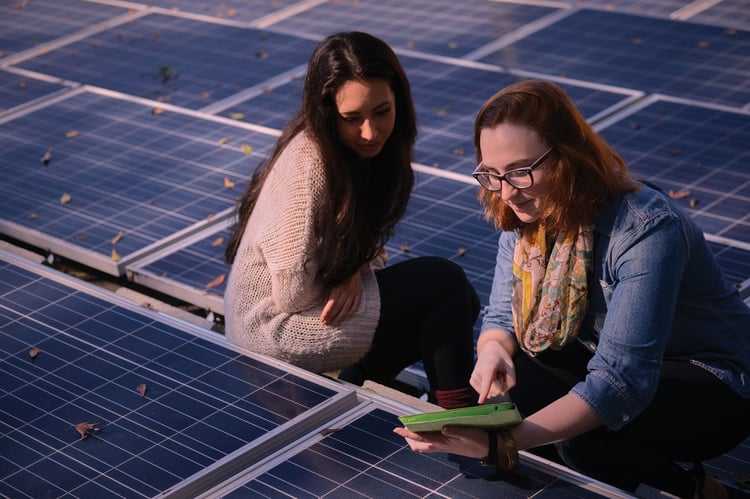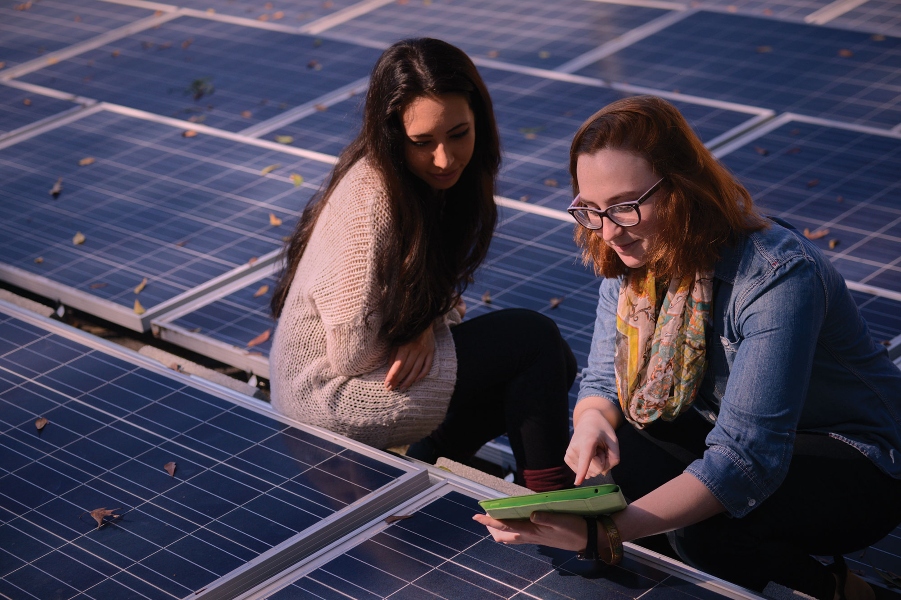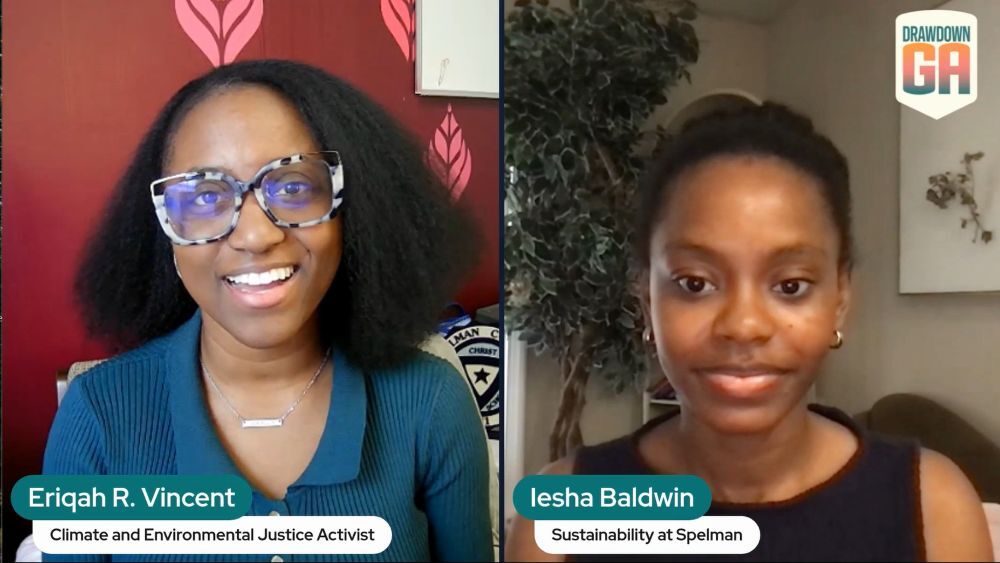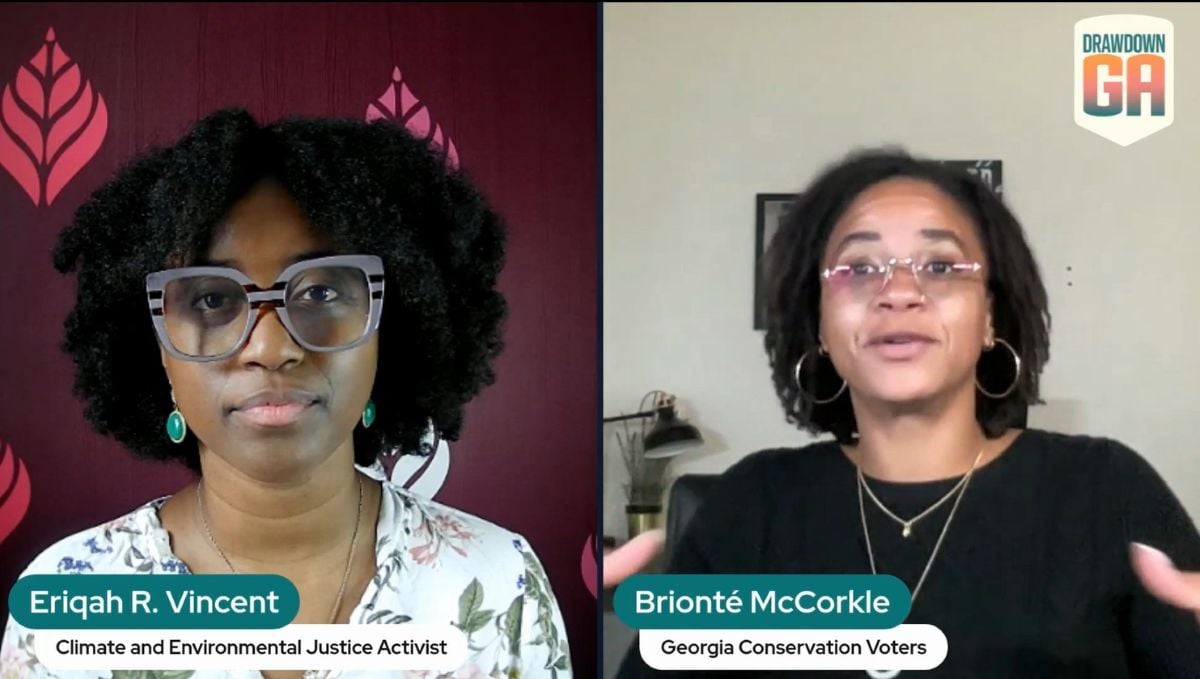This month, the Drawdown Georgia Higher Ed Series spotlights the use of a Green Revolving Fund to achieve large-scale emissions reductions at Agnes Scott College, a women’s college located in Decatur, Ga., with approximately 1,100 students.
As a signatory of The Presidents’ Climate Leadership Commitment, Agnes Scott is committed to energy efficiency and greenhouse gas emission reductions. Agnes Scott completed a Climate Action Plan (CAP) in 2009 and is on target for the college’s goal of carbon neutrality by 2037. In addition, Agnes Scott partnered with the City of Decatur to complete a Climate Resilience Plan in 2021.

This climate action, along with Agnes Scott’s other sustainability programming, earned the school the 13th spot on the Princeton Review’s 2019 list of the nation’s most environmentally responsible colleges. The college also received a Sustainability Tracking, Assessment & Rating System (STARS) Gold ranking from the Association for the Advancement of Sustainability in Higher Education (AASHE) in 2021.
Agnes Scott’s Green Revolving Fund (GRF) was established in 2011 as a financial pool specifically dedicated to funding the college’s energy efficiency retrofitting projects. Agnes Scott set a goal of raising $1 million and met this through individual gifts and a large grant from the Community Foundation of Greater Atlanta’s Grants to Green program.
Upon creation, the GRF had four goals:
-
To assist in meeting their CAP goal of carbon neutrality by 2037. As of 2019, the school has reduced its carbon footprint by almost 40% and expects to reach a 50% reduction by the end of 2022. “Without the Green Revolving Fund, the college would not be on target for our goal of climate neutrality by 2037,” said Susan Kidd, Executive Director of the Center for Sustainability at Agnes Scott.
-
To provide the funding necessary for energy and water efficiency projects when college operating budgets do not have available funds. The GRF offers an opportunity for donors with a specific interest in sustainability to give directly to projects that align with that interest.
-
To reduce utility consumption and costs. GRF-funded energy efficiency projects create an immediate reduction of utility consumption and costs. The cost savings are “revolved” back into the GRF to fund additional projects until the cost of the initial project is repaid. The savings then become permanent to the utility budget.
-
To create practical educational opportunities in sustainability for students and community. The fund has created opportunities for internships and fostered engagement in environmental and sustainability issues across the entire campus community. All decisions about the GRF are made by an advisory committee made up of students, faculty, and staff.
Much of the GRF investment was initially used to replace light and water fixtures. As of 2021, more than 90% of the lighting on campus is LED, and all water fixtures are low flow. As experience with the GRF grew, Agnes Scott took on more complicated projects, including installation of a solar array. The GRF was also tapped to retrofit Campbell Hall and Rebekah Scott Hall, which were built in 1951 and 1905 respectively, with geothermal HVAC systems. The U.S. Green Building Council’s Leadership and Environmental Design (LEED) certification program awarded Campbell Hall LEED Gold and Rebekah Scott Hall LEED Platinum after these renovations.

At the start, the fund relied on alumni and donor support. However, because savings from projects are “revolved” back into the GRF, the fund has doubled in size since 2011, now totaling over $2 million. “The original individual and foundation donations are literally the gifts that keep giving," said Kidd. This growth has shown the GRF to be an incredibly effective financial tool for advancing sustainability projects.
GRF projects are estimated to have saved Agnes Scott College about $1.3 million in water and energy expenses as of 2021. The GRF has also enhanced engagement with Southface Institute, an Atlanta nonprofit, in addition to alumnae and other donors who may not have otherwise supported the college. As the first college in the United States to create a donor-funded Green Revolving Fund that reduces reliance on existing college financial resources for sustainability projects, Agnes Scott has established itself in the broader Atlanta community and beyond as a leader on how to act on climate using an innovative fiscal instrument that delivers long-term savings and sizeable emissions reductions.
You can learn more by visiting the Agnes Scott College Center for Sustainability website and by reading the complete case study of the Green Revolving Fund published by AASHE.
In July 2021, Drawdown Georgia and the Georgia Climate Project launched Drawdown Georgia Higher Ed as an effort to explore climate action in the classrooms and operations of colleges and universities across Georgia. One of the ways in which they are celebrating these climate efforts is to highlight stories of higher education’s leadership in climate action. Thank you to Carys Behnke and Maria Walawender for providing this post.









